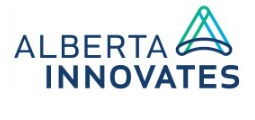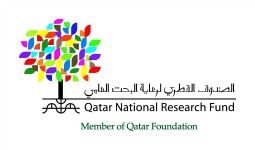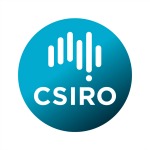Thematic groups
Overview
Thematic Groups aim to harness the knowledge of the ISRIA alumni base and other experts to explore topics of special interest in research impact assessment, forming a global picture on key issues and contributing to practical developments in the field. These groups will develop their themes by:
- drawing together an understanding of existing literature and work;
- gathering and examining information and experience from different disciplines, sectors and World regions to understand variance and commonalities on topics;
- creating and promoting outputs that will enhance understanding and awareness of these aspects of research impact assessment at a local and international level;
- advancing the practice of impact assessment in relation to these areas.
Groups are intended to be interdisciplinary and international - we expect all members to play an active part in pushing forward the work of the group. If you wish to become a member of any of these groups please contact the co-ordinator listed at the end of each topic for more details.
Current themes
1. Gender
This group is working on a set of recommendations to research funders, research institutions, and research evaluators who conduct impact assessment on how to include and strengthen analysis of gender equity in research impact assessment and issue a global call for action. The first output related to this work can be read here.
Co-ordinators: Pavel Ovseiko (Medical Sciences Division, University of Oxford, UK) and Esther Vizcaíno (Agency of Health Quality and Assessment, Catalonia, Spain)
Contact email: pavel.ovseiko@medsci.ox.ac.uk
2. Public engagement in research group
One of the most conclusive findings of different evidence-based RIA studies around the globe is the importance of stakeholder engagement and leadership in research. Research is more impactful if researchers care about impact, but also if other stakeholders care too, including decision-makers, patients (in the case of health research) and society in general. Successful public engagement therefore means taking shared co-responsibility for research.
The European Union has launched the concept (and funding) for undertaking ‘Responsible research’, which includes the concept of public engagement. Engagement is intended in this context to mean, amongst other things: general public outreach and education, interdisciplinary involvement, stakeholder involvement (engaging with multiple organized groups or communities) and training and education of scientists and students in aspects like co-creation in science.
This group will work on effective ways to reinforce engagement, and share best practices.
Co-ordinators: Paula Adam (Agency of Health Quality and Assessment, Catalonia, Spain) and Mark Taylor (National Institute for Health Research, UK)
Contact email: padam@gencat.cat
3. Performance indicators
There is growing demand globally for measuring and demonstrating the impact of research and innovation. However, as a relatively emerging area, there is still much to be done to advance the discipline and science of impact measurement, as well as providing practical implementation solutions.
We are seeking to establish an international group to agree on standards and principles of good impact measurement which include but are not limited to:
- Connecting with similar groups internationally and share emerging tools, resources and benchmarks in this area (e.g. European Union, American Evaluation Association etc.)
- Developing quality criteria for choosing impact indicators
- Developing best practice protocols for selecting key performance indicators which align to the impact assessment purpose and can answer stakeholder questions
- Reviewing case studies which have implemented impact measurement systems at different levels (e.g. system, organizational, program and project levels)
- Recommending best practice indicators for specific impact categories (e.g. Health, Environment etc.)
Co-ordinators: Kathryn Graham (Alberta Innovates, Canada) and Kristi Holmes (Northwestern University, US)
Contact email: kathryn.graham@albertainnovates.ca
4. Methods and tools
This group will aim to deepen understanding of the validity of research impact assessment (RIA) methods across regions, sectors and disciplines. Questions might include:
- What are the existing practices in different areas? What new ideas or ways of improving methods and tools can we create?
- How transferable are approaches/frameworks and methods used in health to other areas (and vice versa)?
- How can the explosion of data and tools available to collate data improve RIA, and what risks do these pose?
In addressing these questions it has been proposed that the group begins by reviewing existing practice, before taking on a horizon scanning function to identify emergent methods and tools which have a potential role in RIA.
Co-ordinators: Alex Pollitt (King’s College, London, UK) and Maite Solans (Agency of Health Quality and Assessment, Catalonia, Spain)
Contact email: alexandra.pollitt@kcl.ac.uk
5. Impact narratives
Narratives are a mechanism to tell the story of how research generates impact. The ability to communicate the pathway to impact through a combination of narration and evidence is critical given that research and innovation are not linear processes. This mechanism is especially useful for communicating impact to broader audiences beyond academia.
This group seeks to build on work started in Canada and taking lessons learned from the Research Excellence Framework in the UK and elsewhere to help the research community develop meaningful impact narratives. This will be achieved through the development of toolboxes, guidelines and other resources. The group also aims to share impact narratives with a broad group of stakeholders and the public through the development of an impact narrative repository. The purpose of the repository is to build researchers’ capacity to communicate their impact in a meaningful and accessible way to various stakeholders, with a particular focus on the public.
Co-ordinator: Deanne Langlois-Klassen (Alberta Innovates, Canada)
Contact email: deanne.langlois-klassen@albertainnovates.ca






.png)